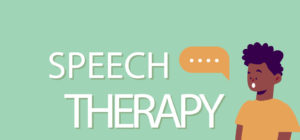Speech therapy is an essential field of healthcare that focuses on evaluating and treating communication disorders and speech-related issues. It encompasses a range of interventions designed to improve speech and language skills, understanding and expressing language, and the mechanics of speech such as voice and fluency. This specialised therapy is not just for children; it benefits individuals across all age groups who face challenges with verbal communication.
Understanding Speech Therapy
Speech therapists, or speech-language pathologists (SLPs), are trained professionals who diagnose and treat various communication and swallowing disorders. These disorders can arise from several causes including congenital problems, developmental delays, brain injuries, neurological disorders, stroke, or through progressive conditions like dementia.
Benefits of Speech Therapy
- Early Developmental Support for Children: For children, early intervention is key. Speech therapy helps in correcting speech disorders or delays in language development. It addresses issues like stutters, lisps, and articulation problems, and helps in expanding vocabulary and forming sentences. This sets a foundation for better academic performance and social interaction skills.
- Enhanced Communication for Adults: Adults may require speech therapy after a stroke or due to degenerative diseases that affect their ability to speak and communicate effectively. Therapy can aid in the recovery of language skills and teach alternative communication strategies if necessary.
- Improved Social Skills: By enhancing communication abilities, speech therapy naturally improves an individual’s social skills. This is because effective communication is integral to interacting with others. For children, this means better interactions at school and with peers, and for adults, improved relationships at work and in social settings.
- Boosted Self-Esteem and Independence: Many individuals with speech and language difficulties experience a boost in their confidence as they become more able to express themselves. This can lead to greater independence and an improved quality of life.
How Speech Therapy Works
Speech therapy sessions are tailored to meet the specific needs of each individual. Therapy might involve exercises to strengthen the muscles used for speaking, speech drills to improve clarity, or activities to enhance language development. SLPs use a variety of tools and techniques, including picture communication, sign language, or technology-based applications to aid communication.
Therapists often provide families with resources and exercises to continue practice at home, which is a crucial part of the therapy process. This home-based practice helps reinforce the skills learned during therapy sessions and accelerates progress.
The Importance of Support Systems
The role of family and educators in the process of speech therapy is crucial. Their support can significantly impact the effectiveness of the treatments. By integrating the strategies learned during therapy into daily interactions, they can provide a consistent environment that facilitates continuous improvement.




